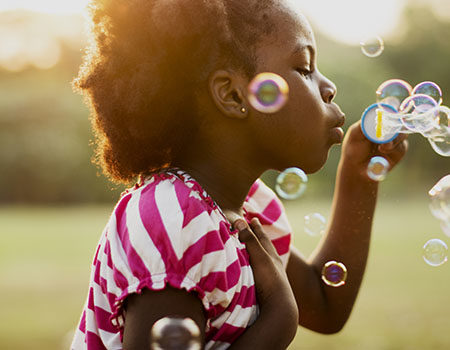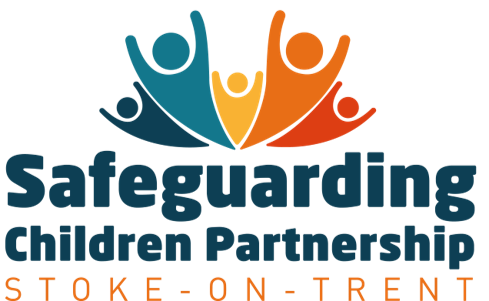Harmful Practices
Harmful Practices
What is meant by harmful practices?
Harmful traditional practices are forms of violence which have been committed, primarily against women and girls, in certain communities and societies for so long that they are considered, or presented by perpetrators, as part of accepted cultural practice. They have often been embedded in communities for a long time and are born out of community pressure.
The most common forms of harmful practices are:
- female genital mutilation or cutting (FGM).
- so called ‘honour’ based violence/abuse
- forced or early marriage
Other less common forms include:
- Spirit Possession
- Breast Ironing
Female Genital Mutilation
The World Health organisation defines female genital mutilation (FGM) as ‘all procedures involving partial or total removal of the external female genitalia, or other injury to the female genital organs for non-medical reasons.’ FGM is prevalent as a cultural ritual in 28 African countries as well as in parts of the Middle East and Asia. For this reason, FGM is also known by alternative definitions which are better received in the communities that practice it, who do not see themselves as engaging in mutilation. However, FGM is also recognised internationally as a violation of Human Rights and is illegal in the United Kingdom.
There is now a Mandatory Reporting Duty on professionals. If you are aware that a child or young person has been subjected to FGM you must inform the Police.
From 31 October 2015, regulated health and social care professionals and teachers in England and Wales must report ‘known’ cases of FGM in under 18s which they identify in the course of their professional work, to the police
To inform the Police of a known case of FGM, please contact 101.
The Home Office has published procedural information on the duty to help health and social care professionals, teachers and the police understand the legal requirements placed upon them. This includes a suggested process to follow, and an overview of the action which may be taken if they fail to comply with the duty. It also aims to provide the police with an understanding of the duty and their next steps upon receiving a report.
Honour Based Violence/Abuse
For some communities, ‘honour’ is deemed to be extremely important. To compromise a family’s ‘honour’ is often to bring dishonour and shame and this can have severe consequences. The punishment for bringing dishonour can be emotional abuse, physical abuse, family disownment and in some cases even murder. In most honour-based abuse cases there are multiple perpetrators from the immediate family, sometimes the extended family and occasionally the community at large. Mothers, sisters, aunties and even grandmothers have been known to be involved in the conspiring of honour crimes.
- Karma Nirvanasupports victims of Honour Based Abuse and Forced Marriage.
- The Halo Projectprovides support for victims and advice for agencies.
- The Freedom Charityoffers a 24 hour helpline service to provide support and protection of victims of abuse.
Forced/Early Marriage
What is forced marriage?
There is a clear distinction between a ‘forced’ marriage and an ‘arranged’ marriage. In arrangedging marriages, the families of both spouses take a leading role in arranging the marriage, but the choice whether or not to accept the marriage remains with the prospective spouses.
A ‘forced’ marriage is a marriage in which one or both spouses do not and/or cannot consent to the marriage and duress is involved. Duress can include physical, psychological, financial, sexual and emotional pressure. Duress cannot be justified on religious or cultural grounds.
Parents who force their children into marriage may often justify their behaviour as protecting the child, building stronger families and preserving cultural or religious traditions. They often do not see anything wrong with their actions, however, forced marriage cannot be justified on religious grounds; every major faith condemns it and freely given consent is a prerequisite of all religions. Some parents may also come under significant pressure from their extended family or community to ensure their children marry; some agreements of marriage may have been made when a child is only an infant.
Some key motives which have been identified are:
- Controlling unwanted behaviour and sexuality (including perceived promiscuity, or being lesbian, gay, bisexual or transgender) – particularly the behaviour and sexuality of women
- Controlling unwanted behaviour, for example, alcohol and drug use, wearing make-up or behaving in what is perceived to be a ‘westernised manner’
- Preventing ‘unsuitable’ relationships e.g. outside the ethnic, cultural, religious or caste group
- Protecting family honour or ‘izzat’
- Responding to peer group or financial pressure
- Attempting to strengthen family links
- Achieving financial gain
- Ensuring land, property and wealth remain within the family
- Protecting perceived cultural ideals
- Protecting perceived religious ideals which are misguided
- Ensuring care for a child or adult with special needs when parents or existing carers are unable to fulfil that role
- Long standing family commitments
- Domestic abuse: taking of dowry, forced repatriation, Female Genital Mutilation, acid attacks, blood feuds, honour killings, abduction, murder
- Sexual abuse: non-consensual and/or underage sex
- Emotional abuse
- Physical abuse
As of 2014 forced marriage is a criminal offence under the Anti-social Behaviour, Crime and Policing Act 2014. The offence of forcing someone to marry includes:
- Taking someone overseas to force them to marry (whether or not the forced marriage takes place)
- Marrying someone who lacks the mental capacity to consent to the marriage (whether they are pressured into it or not)
- Breaching a Forced Marriage Protection Order. The process of obtaining the Order through the family courts continues to exist.
Forcing someone to marry can result in a sentence of up to 7 years in prison. Disobeying a Forced Marriage Protection Order can result in a sentence of up to 5 years in prison.
The FMU is a joint Foreign and Commonwealth Office and Home Office unit which was set up in January 2005 to lead on the government’s forced marriage policy, outreach and casework. It operates both inside the UK, where support is provided to any individual, and overseas, where consular assistance is provided to British nationals, including dual nationals.
The FMU operates a public helpline to provide advice and support to victims of forced marriage as well as to professionals dealing with cases. The assistance provided ranges from simple safety advice, through to aiding a victim to prevent their unwanted spouse moving to the UK (‘reluctant sponsor’ cases), and, in extreme circumstances, to rescues of victims held against their will overseas.
The FMU undertake an extensive outreach and training programme of around 100 events a year, targeting both professionals and potential victims. The FMU also carry out media campaigns, such as 2012’s ‘right to choose’ summer campaign, where the FMU commissioned three short films to raise awareness amongst young people at risk of being taken overseas for forced marriage.
Supporting Documents
Breast Ironing/Flattening
Breast Ironing also known as “Breast Flattening” is the process whereby young pubescent girls breasts are ironed, massaged and/or pounded down using hard or heated objects in order for the breasts to disappear or delay the development of the breasts entirely.
The United Nations states that breast ironing affects 3.8 million women around the world and has been identified as one of the five under-reported crimes relating to gender-based violence. The custom uses large stones, a hammer or spatulas that have been heated over scorching coals to compress the breast tissue of girls as young as 9 years old. Those who derive from richer families may opt to use an elastic belt to press the breasts so as to prevent them from growing. The mutilation is a traditional practice from Cameroon designed to make teenage girls look less “womanly” and to deter unwanted male attention, pregnancy and rape. Although there is no specific law against breast ironing, it is physical abuse and therefore professionals must make a referral to Children’s Services.
More information can be found on the National FGM Centre website.
Child Abuse Linked to Faith or Belief
The National Action Plan includes the ideas below when referring to Child Abuse Linked to Faith or Belief:
“Belief” in the concept of:
- witchcraft and spirit possession, demons or the devil acting through children or leading them astray (traditionally seen in some Christian beliefs),
- the evil eye or djinns (traditionally known in some Islamic faith contexts) and dakini (in the Hindu context);
- ritual or muti murders where the killing of children is believed to bring supernatural benefits or the use of their body parts is believed to produce potent magical remedies;
- use of belief in magic or witchcraft to create fear in children to make them more compliant when they are being trafficked for domestic slavery or sexual exploitation.
The above list is not exhaustive and there may well other examples of where children and young people have been harmed when one or more adults believe their actions have brought bad fortune.
The belief in “possession or “witchcraft” is widespread. It is not confined to particular countries, cultures or religions, nor is it confined to new immigrant communities in this country. The definition, which is commonly accepted across faith-based organisations, non-governmental organisations and the public sector, is the term ‘possession by evil spirits’ or ‘witchcraft’.
The number of known cases of child abuse linked to accusations of “possession” or “witchcraft” is small, but children involved can suffer damage to their physical and mental health, their capacity to learn, their ability to form relationships and to their self-esteem.
Such abuse generally occurs when a carer views a child as being “different”, attributes this difference to the child being “possessed” or involved in “witchcraft” and attempts to exorcise him or her. A child could be viewed as “different” for a variety of reasons such as, disobedience; independence; bed-wetting; nightmares; illness; or disability. There is often a weak bond of attachment between the carer and the child.
There are various social reasons that make a child more vulnerable to an accusation of “possession” or “witchcraft”. These include family stress and/or a change in the family structure. The attempt to “exorcise” may involve severe beating, burning, starvation, cutting or stabbing and isolation, and usually occurs in the household where the child lives. Siblings or other children in the household may be well cared for with all their needs met by the parents and carers. The other children may have been drawn in by the adults to view the child as “different” and may have been encouraged to participate in the adult activities.
Additional Information:
Topics





